American Life in Poetry: Column 500
BY TED KOOSER, U.S. POET LAUREATE
 This is our 500th weekly column, and we want to thank the newspapers who publish us, the poets who are so generous with their work, our sponsors The Poetry Foundation, The Library of Congress, the University of Nebraska-Lincoln English Department, and our many readers, in print and on line.
This is our 500th weekly column, and we want to thank the newspapers who publish us, the poets who are so generous with their work, our sponsors The Poetry Foundation, The Library of Congress, the University of Nebraska-Lincoln English Department, and our many readers, in print and on line.
Almost every week I read in our local newspaper that some custodial parent has had to call in the law to stand by while a child is transferred to its other parent amidst some post-divorce hostility. So it’s a pleasure to read this poem by Elise Hempel, who lives in Illinois, in which the transfer is attended only by a little heartache.
The Transfer
His car rolls up to the curb, you switch
your mood, which doll to bring and rush
out again on the sliding steps
of your shoes half-on, forgetting to zip
your new pink coat in thirty degrees,
teeth and hair not brushed, already
passing the birch, mid-way between us,
too far to hear my fading voice
calling my rope of reminders as I
lean out in my robe, another Saturday
morning you’re pulled toward his smile, his gifts,
sweeping on two flattened rafts
from mine to his, your fleeting wave
down the rapids of the drive.
American Life in Poetry is made possible by The Poetry Foundation (www.poetryfoundation.org), publisher of Poetry magazine. It is also supported by the Department of English at the University of Nebraska-Lincoln. Poem copyright ©2013 by Elise Hempel and reprinted from Only Child, Finishing Line Press, 2014, by permission of Elise Hempel and the publisher. Introduction copyright © 2014 by The Poetry Foundation. The introduction’s author, Ted Kooser, served as United States Poet Laureate Consultant in Poetry to the Library of Congress from 2004-2006. We do not accept unsolicited manuscripts.


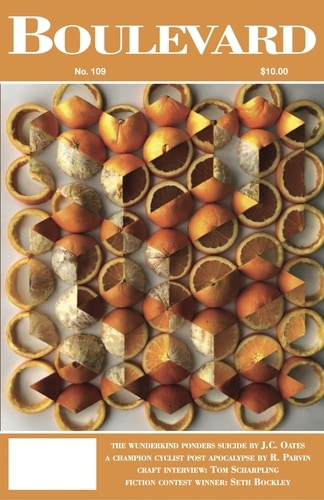
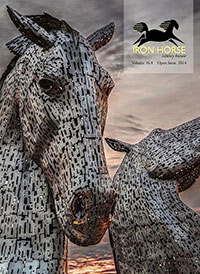
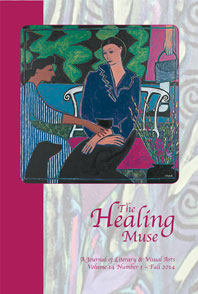 I love the concept of
I love the concept of 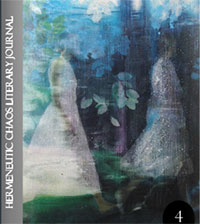
 This is our 500th weekly column, and we want to thank the newspapers who publish us, the poets who are so generous with their work, our sponsors The Poetry Foundation, The Library of Congress, the University of Nebraska-Lincoln English Department, and our many readers, in print and on line.
This is our 500th weekly column, and we want to thank the newspapers who publish us, the poets who are so generous with their work, our sponsors The Poetry Foundation, The Library of Congress, the University of Nebraska-Lincoln English Department, and our many readers, in print and on line.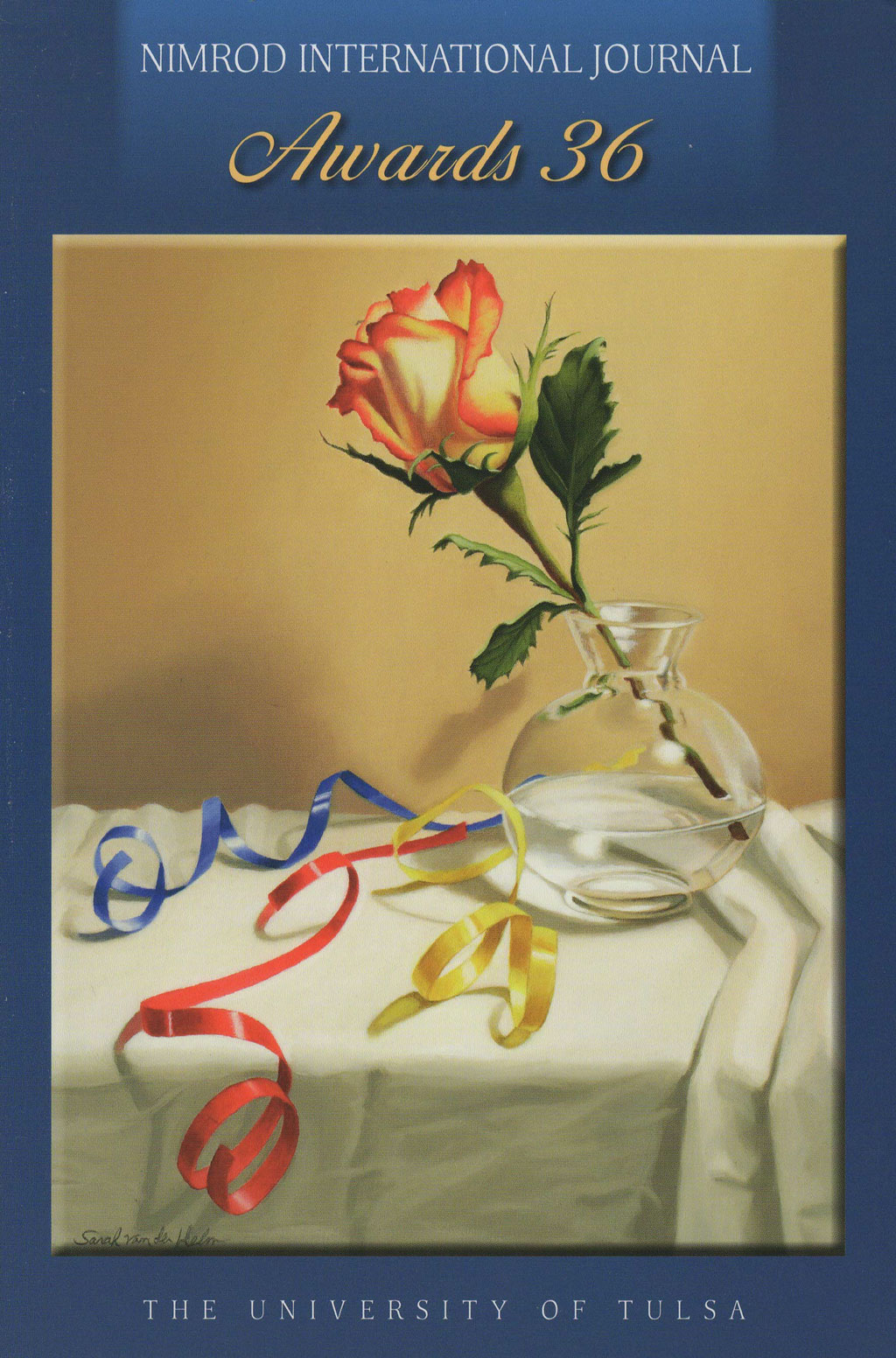 Every year, Nimrod puts out a special issue dedicated to that year’s awards: The Katherine Anne Porter Prize for Fiction and The Pablo Neruda Prize for Poetry. This fall, Nimrod honors the selections made by fiction judge Chris Abani and poetry judge W. S. Di Piero. “The winning stories and poems display a breadth of style and creativity, each one unique in its approach to its subject.”
Every year, Nimrod puts out a special issue dedicated to that year’s awards: The Katherine Anne Porter Prize for Fiction and The Pablo Neruda Prize for Poetry. This fall, Nimrod honors the selections made by fiction judge Chris Abani and poetry judge W. S. Di Piero. “The winning stories and poems display a breadth of style and creativity, each one unique in its approach to its subject.” DigitalArts Editor
DigitalArts Editor  Because of her large success with her creative nonfiction title Wild, Cheryl Strayed is greatly known in the writing world, and in the latest print issue of
Because of her large success with her creative nonfiction title Wild, Cheryl Strayed is greatly known in the writing world, and in the latest print issue of 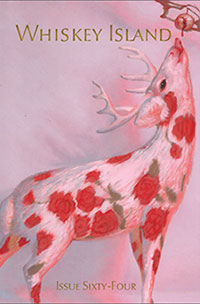
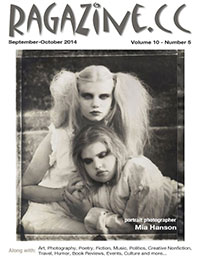
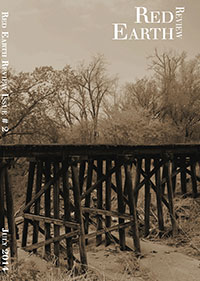

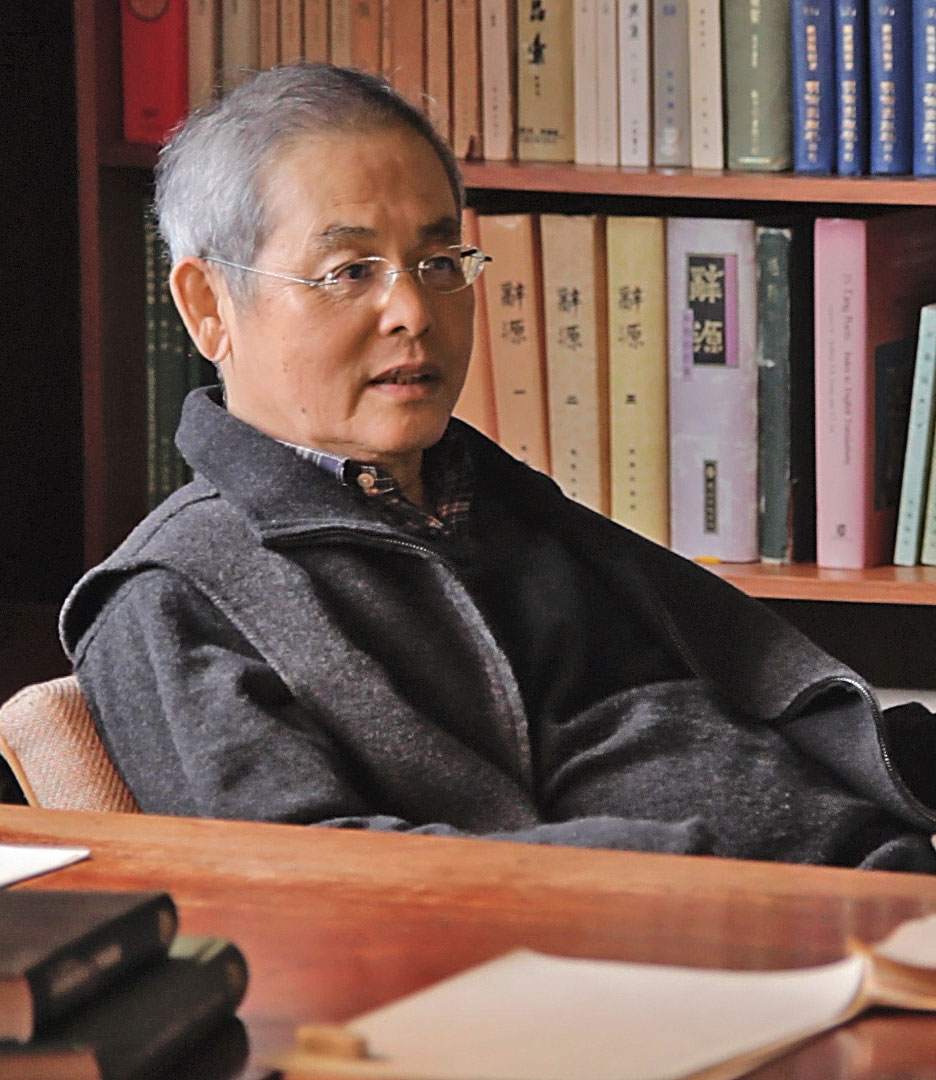 “The Newman Prize for Chinese Literature is awarded biennially in recognition of outstanding achievement in prose or poetry that best captures the human condition, and is conferred solely on the basis of literary merit.” The winner for 2013 is Yang Mu, and the recent issue of Chinese Literature Today includes a special feature on the writer, including poetry by Yang Mu and an interview.
“The Newman Prize for Chinese Literature is awarded biennially in recognition of outstanding achievement in prose or poetry that best captures the human condition, and is conferred solely on the basis of literary merit.” The winner for 2013 is Yang Mu, and the recent issue of Chinese Literature Today includes a special feature on the writer, including poetry by Yang Mu and an interview.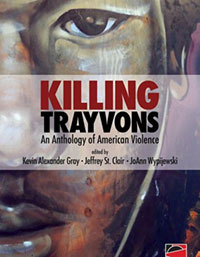 Published by CounterPunch,
Published by CounterPunch, 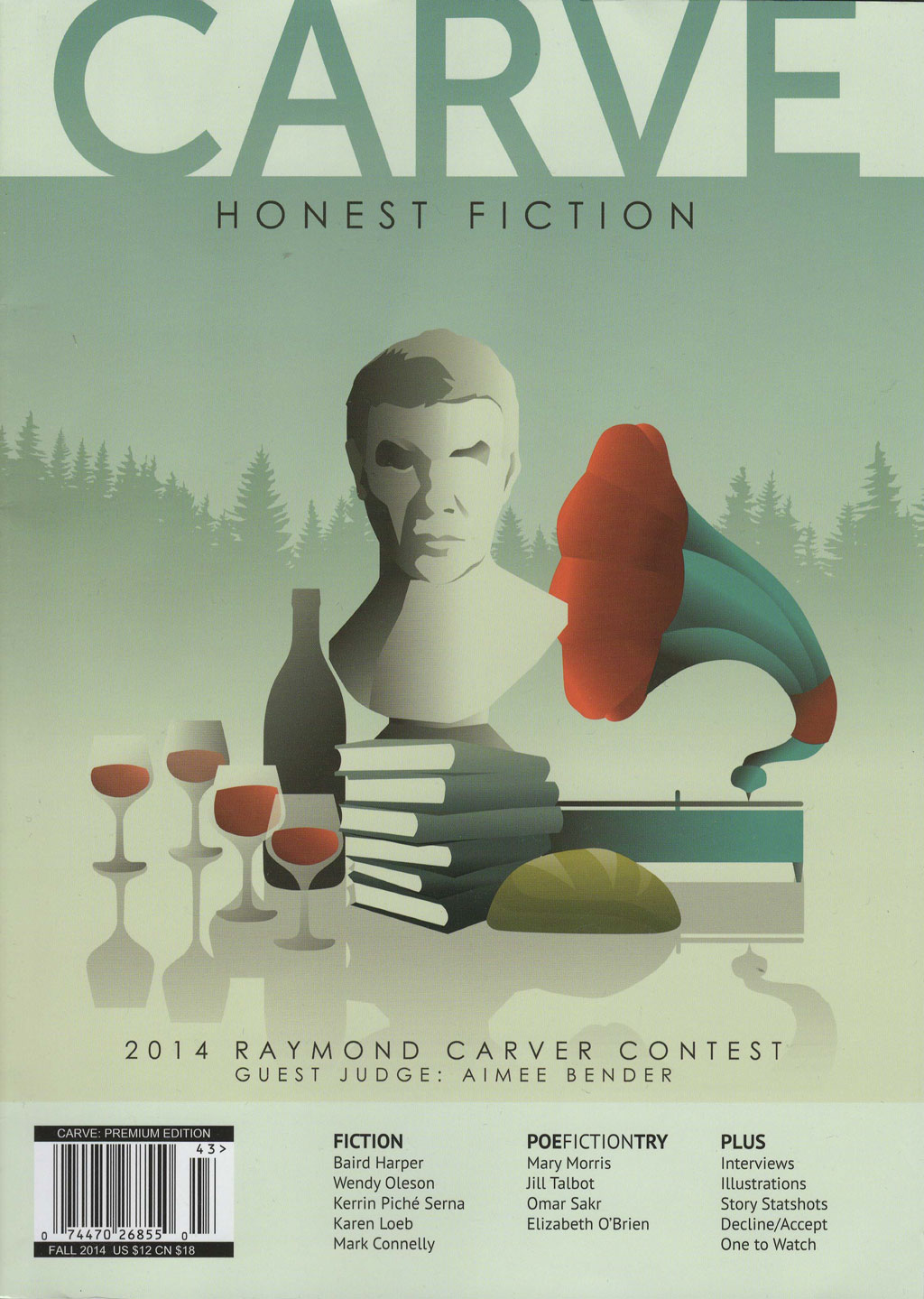 The latest issue of
The latest issue of  On a parking lot staircase
On a parking lot staircase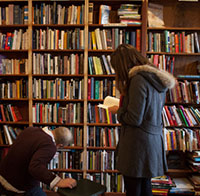 “You know what you can’t buy on Amazon? A cozy nook to hang out and skim the new or used book you’re about to buy. Knowledgeable staffers (not algorithms) to recommend favorite novels. Some of our favorite bookstores even offer coffee, wine or beer. So the next time you’re on the hunt for a page-turner, browse the stacks inside these wonderful, well-read shops.” Check out the stores in
“You know what you can’t buy on Amazon? A cozy nook to hang out and skim the new or used book you’re about to buy. Knowledgeable staffers (not algorithms) to recommend favorite novels. Some of our favorite bookstores even offer coffee, wine or beer. So the next time you’re on the hunt for a page-turner, browse the stacks inside these wonderful, well-read shops.” Check out the stores in 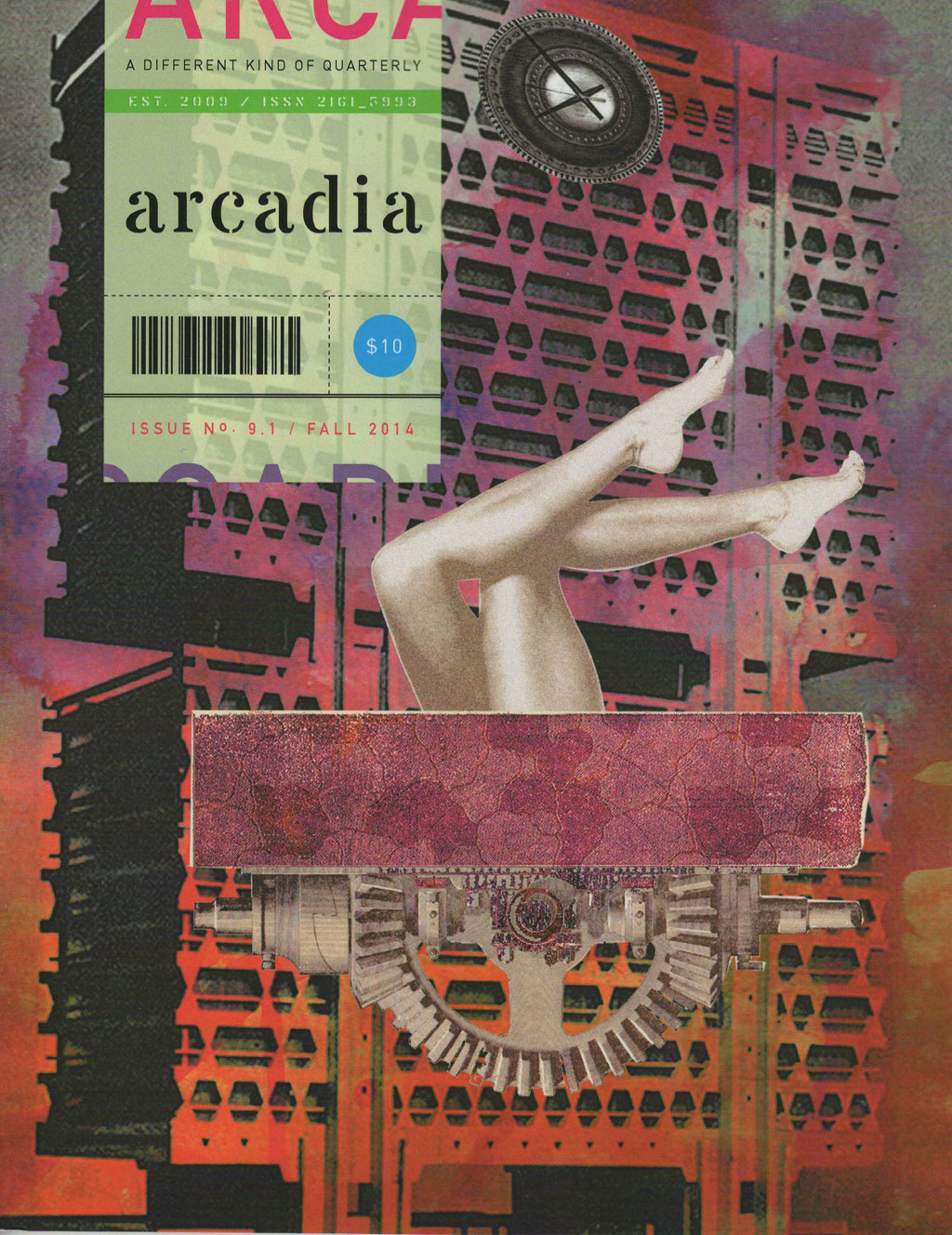
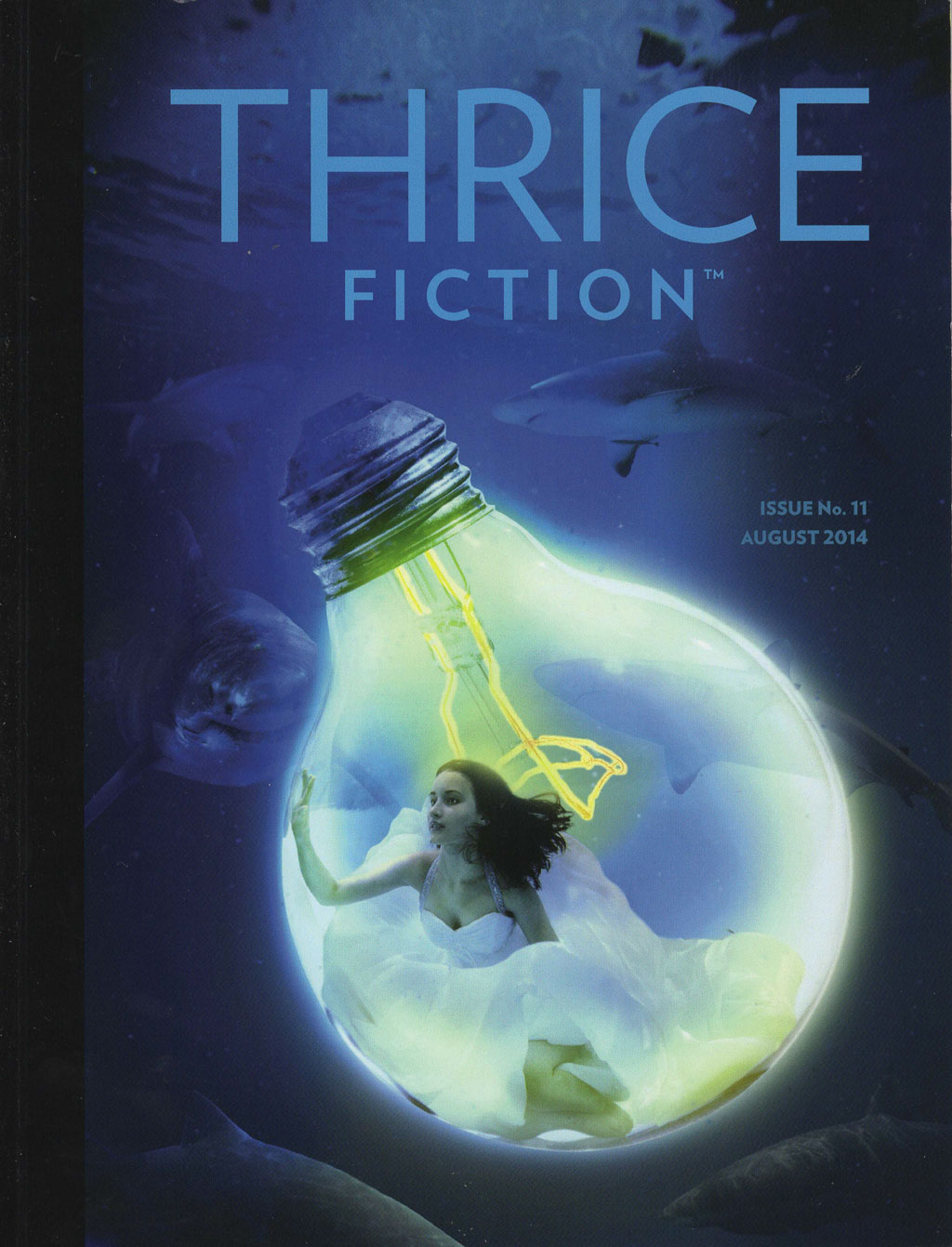
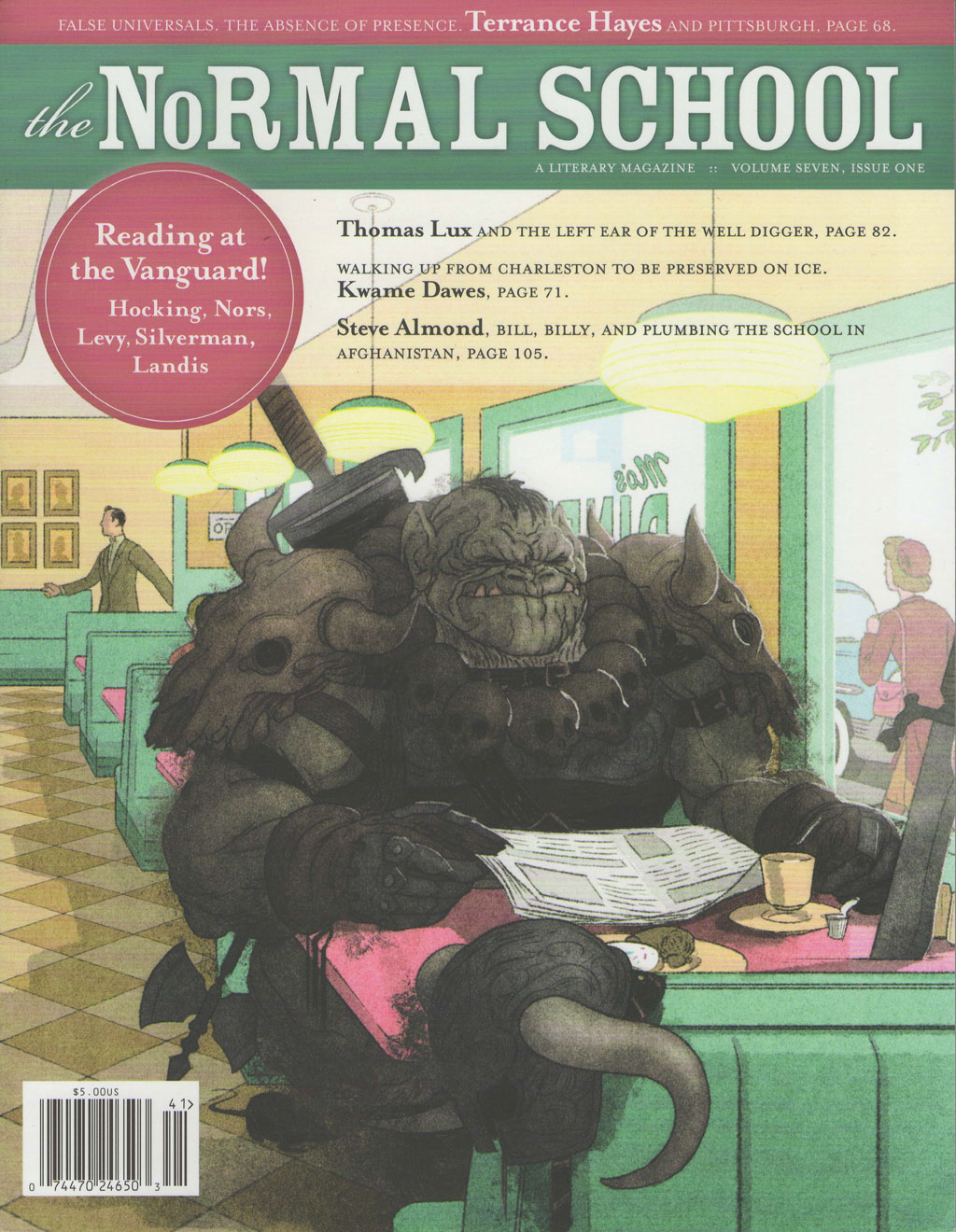
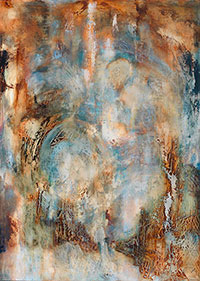 From
From  Non-Sequitur by
Non-Sequitur by  1st place goes to John Thornton Williams [pictured] of Laramie, WY. He wins $1500 for “Darling, Keith, The Subway Girl, and Jumping Joe Henry” and his story will be published in Issue 95 of Glimmer Train Stories. This will be his first print publication.
1st place goes to John Thornton Williams [pictured] of Laramie, WY. He wins $1500 for “Darling, Keith, The Subway Girl, and Jumping Joe Henry” and his story will be published in Issue 95 of Glimmer Train Stories. This will be his first print publication.  The independent print literary review,
The independent print literary review, 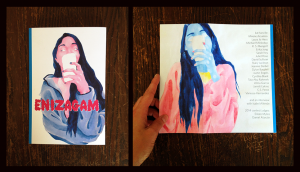 The latest volume of
The latest volume of  Bruce Bond, of Denton, Texas, has been named winner of the
Bruce Bond, of Denton, Texas, has been named winner of the  The Fall/Winter 2014 issue of
The Fall/Winter 2014 issue of